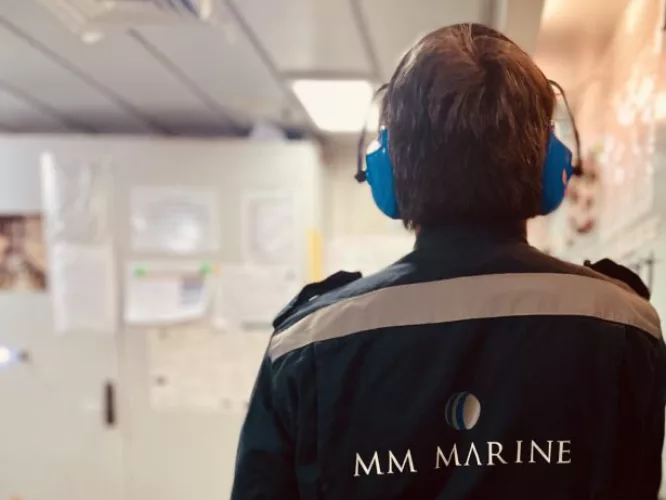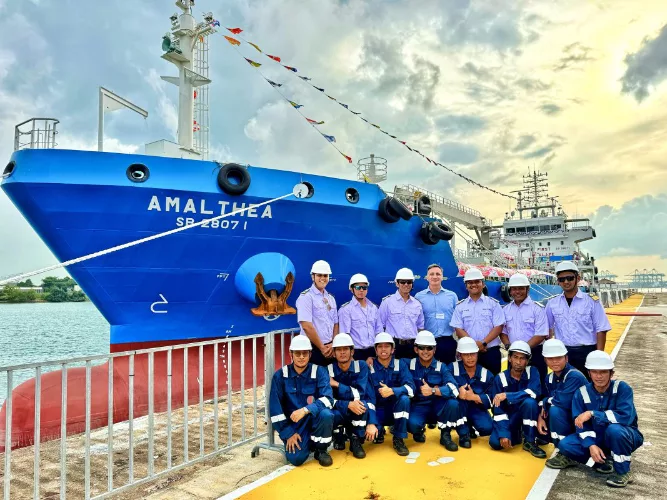Planet
A focus on our world
The need to shift towards renewable energy sources is undeniable and is becoming a central theme globally. This transition, both an exciting and complex opportunity, has become a priority in boardroom discussions, driven by both passionate youth and increasingly sustainability-conscious stakeholders.
Reaching “net zero” isn’t simply about reducing and stopping emissions – it is about actively removing carbon from the atmosphere. This journey will likely require a dual approach: leveraging innovative technologies such as Direct Air Capture (DAC), alongside harnessing the power of nature through Nature-Based Solutions (NBS).

Towards lower carbon
The world’s quest for secure, affordable, and sustainable energy demands a fundamental shift, such as transitioning to lower-carbon sources. This transformation will reshape traditional energy commodity businesses such as power, natural gas, crude oil, and LNG, in the coming decades.
Pricing these commodities effectively requires a clear understanding of the evolving environmental products markets. These markets are growing rapidly as nations and companies set ambitious carbon reduction targets.
Mercuria actively participates in these global carbon trading markets, from voluntary offset programs to growing clean fuels initiatives. As more investors enter these areas, liquidity across various contracts will increase, fostering a robust marketplace essential for hedging physical obligations.
We connect both new and existing counterparties with carbon-free or low-carbon products, fulfilling the increasingly urgent demand for environmentally conscious commodities. In the voluntary market, we’re building a robust portfolio of carbon offsets, anticipating growing corporate demand as Net Zero commitments come into focus.
And as part of our commitment to assisting countries in achieving their Paris Agreement goals, we actively collaborate with national environmental agencies to operationalize Article 6 carbon trading provisions. Memorandums of understanding that we have signed pave the way for impactful international collaboration.
Leveraging existing business strengths and fostering strategic partnerships, Mercuria drives the development and expansion of renewable natural gas (RNG) and biogas projects. Our participation in numerous clean fuels programs, like California’s Low Carbon Fuel Standard, exemplifies our commitment.
We are also producing biogas for diverse end users, fulfilling both voluntary and compliance needs in domestic and international markets. As utilities prioritize long-term net-zero goals, these nascent markets are poised for significant growth.
Building on this momentum, Mercuria has embarked on various projects aligned with the UN SDGs, addressing deforestation, increasing biodiversity, and supporting rural communities through cookstoves and solar power initiatives.
Nature restoration and biodiversity
In the wake of the Paris Agreement, governments and companies worldwide have rallied behind the ambitious goal of Net Zero by 2050. We at Mercuria share this goal and recognize the dual imperatives: providing low-carbon energy within the energy transition, that we describe elsewhere, and protecting and restoring nature. Both are essential for achieving Net Zero, alongside the need for carbon credits as emissions decline and low-carbon solutions scale.
Demonstrating our bold commitment to nature, in 2023 we launched Silvania, a US$500 million investment vehicle dedicated to restoring and protecting land and forests. The initial target? To protect an area of 10 million hectares – almost twice the size of Scotland. Read more about Silvania in our Partner Profiles.
Silvania goes beyond mere investment. By injecting capital across the value chain and providing technical and financial support for diverse projects across several geographical regions, we will generate tangible environmental, biodiversity, and social benefits. These investments will yield high-quality carbon credits and co-benefits, reducing or sequestering emissions and enhancing biodiversity through Agriculture, Forestry, and Other Land Use (AFOLU) strategies. Silvania’s projects will deliver positive global climate change and biodiversity impacts while fostering local environmental and social improvements. Our focus areas include:
- North America: Innovative carbon sequestration projects with small landowners and restoration of degraded peatlands.
- Latin America: Sustainable forest management, restoration of forests and degraded mangrove ecosystems.
- Africa and Asia: Reduction of methane emissions from agriculture, avoided deforestation, and peatland conservation.
- Australia and New Zealand: Forest restoration and conservation programs.
- Globally: Supporting large-scale deforestation prevention through jurisdictional REDD programs.
Nature-based solutions are vital to achieving the Paris Agreement’s climate goals and underpinning many UN Sustainable Development Goals, including the ambitious 30×30 initiative to protect 30% of Earth’s land and ocean area by 2030. However, the 2021 UN and World Economic Forum report highlights a significant funding gap, urging annual investments exceeding US$500 billion by 20501.
Mercuria is uniquely positioned to bridge this gap. Silvania will leverage the deep expertise of our Environmental Products team, active in over 15 countries across 6 continents. Investments will span various nature-based solution categories, including direct land purchases for existing forest management, reforestation, and restoration projects, or equity investments in project development and operating companies targeting avoided emissions, removals, and biodiversity benefits. Silvania will also utilize Mercuria’s cutting-edge technology and remote sensing capabilities for project identification, monitoring, reporting, and verification. Our digital innovation team has been developing specialized tools using remote sensing and machine learning, focusing specifically on nature conservation.
By spearheading the Silvania initiative, we hope to catalyze large-scale investment in nature through diverse project types. Achieving our ambitious restoration and conservation goals requires both capital and expertise, and Mercuria is perfectly equipped to deliver both.
1 United Nations Environment Program May 2021: State of Finance for Nature
Researching the polar oceans
The need to protect nature and biodiversity isn’t confined to the land. There is much we don’t yet understand about the polar regions and the impact that climate change is having on them.
That’s why, in June 2024, we were proud to sponsor two expeditions to the Arctic to both learn more and raise awareness of the critical role that the poles play in regulating the planet’s climate.
Sponsoring the Ocean Science Expedition & Forel Research Platform
Continue reading
Energy mix →
Reporting areas
Governance
Planet
People
Prosperity




